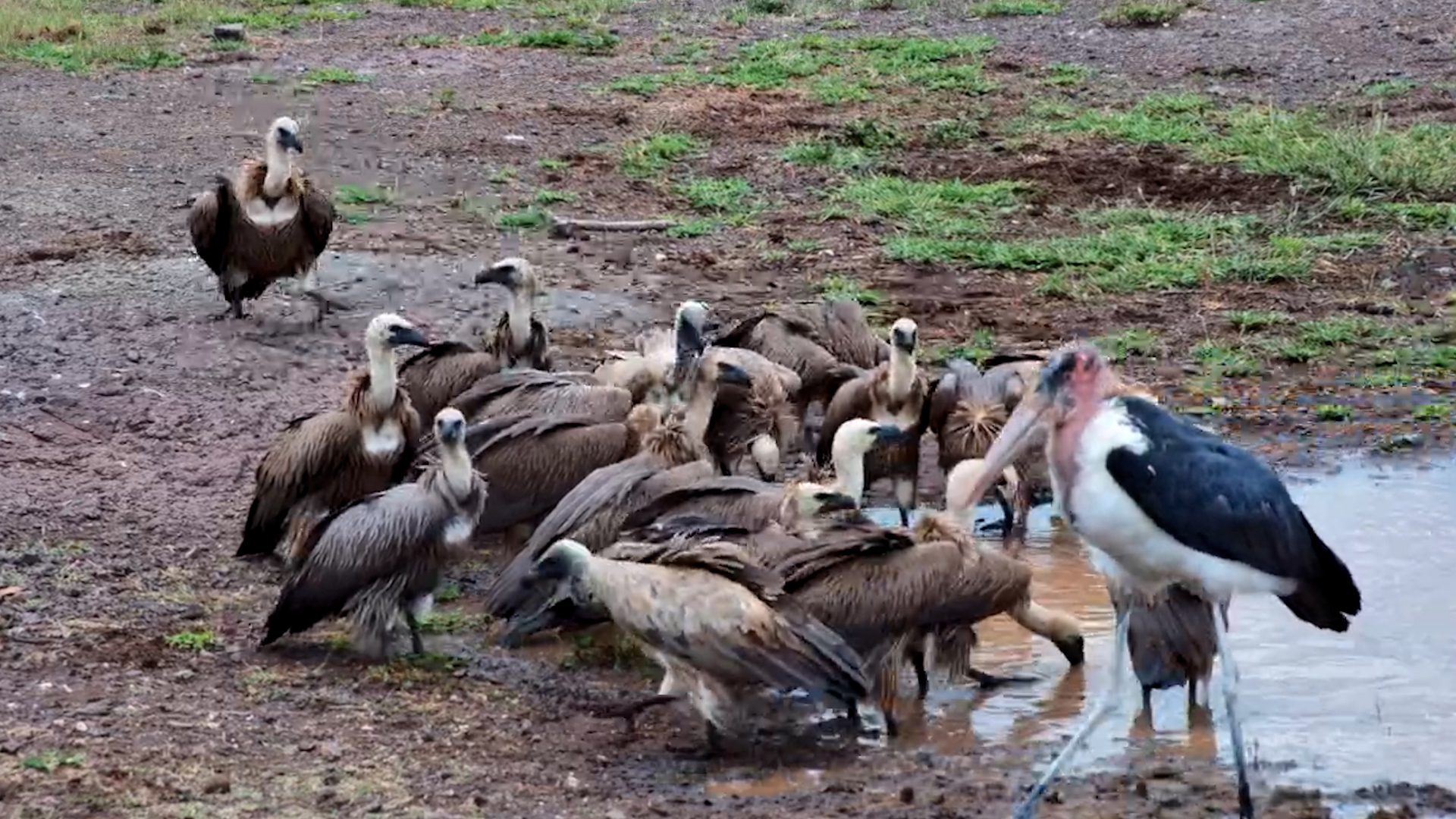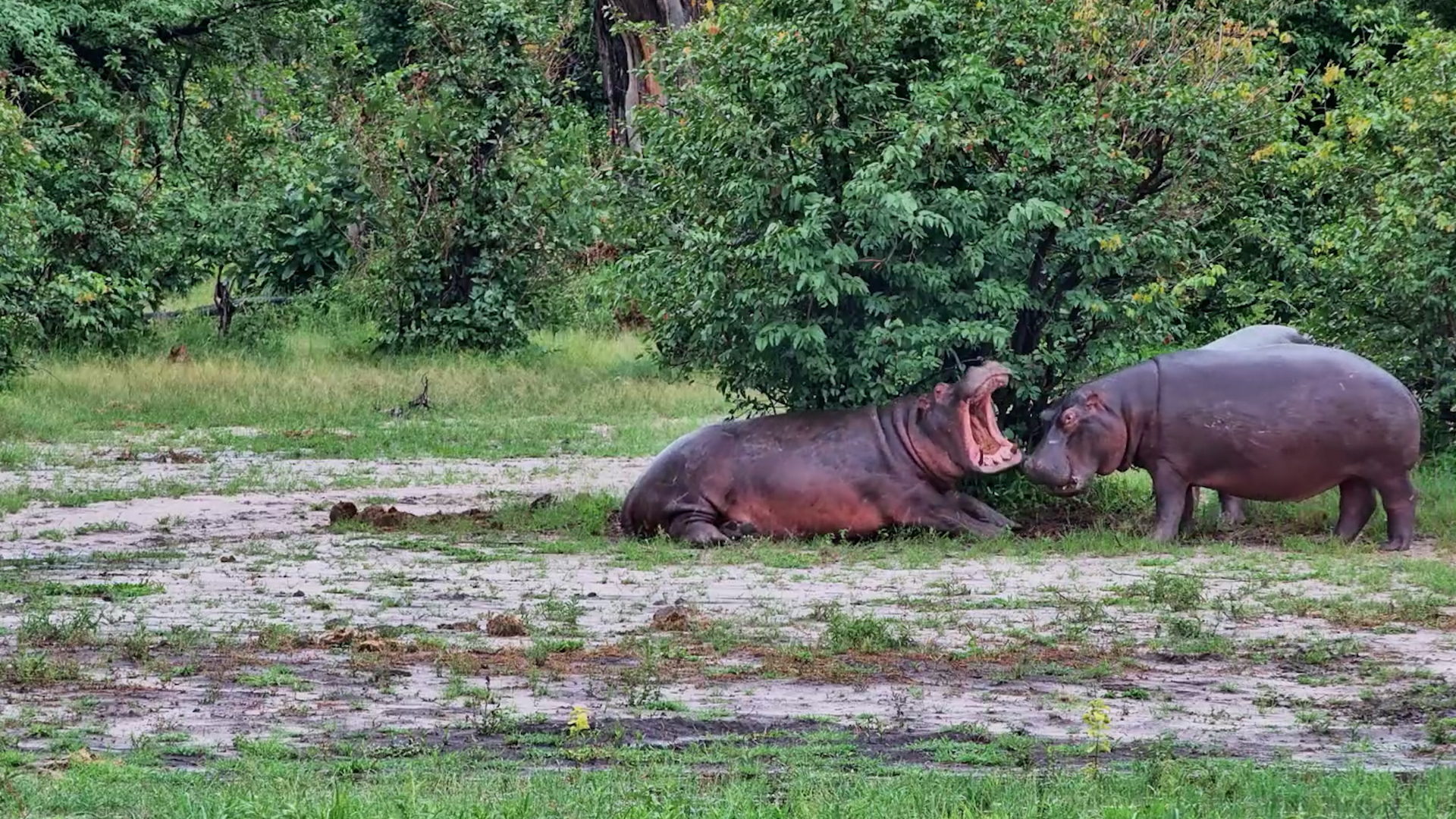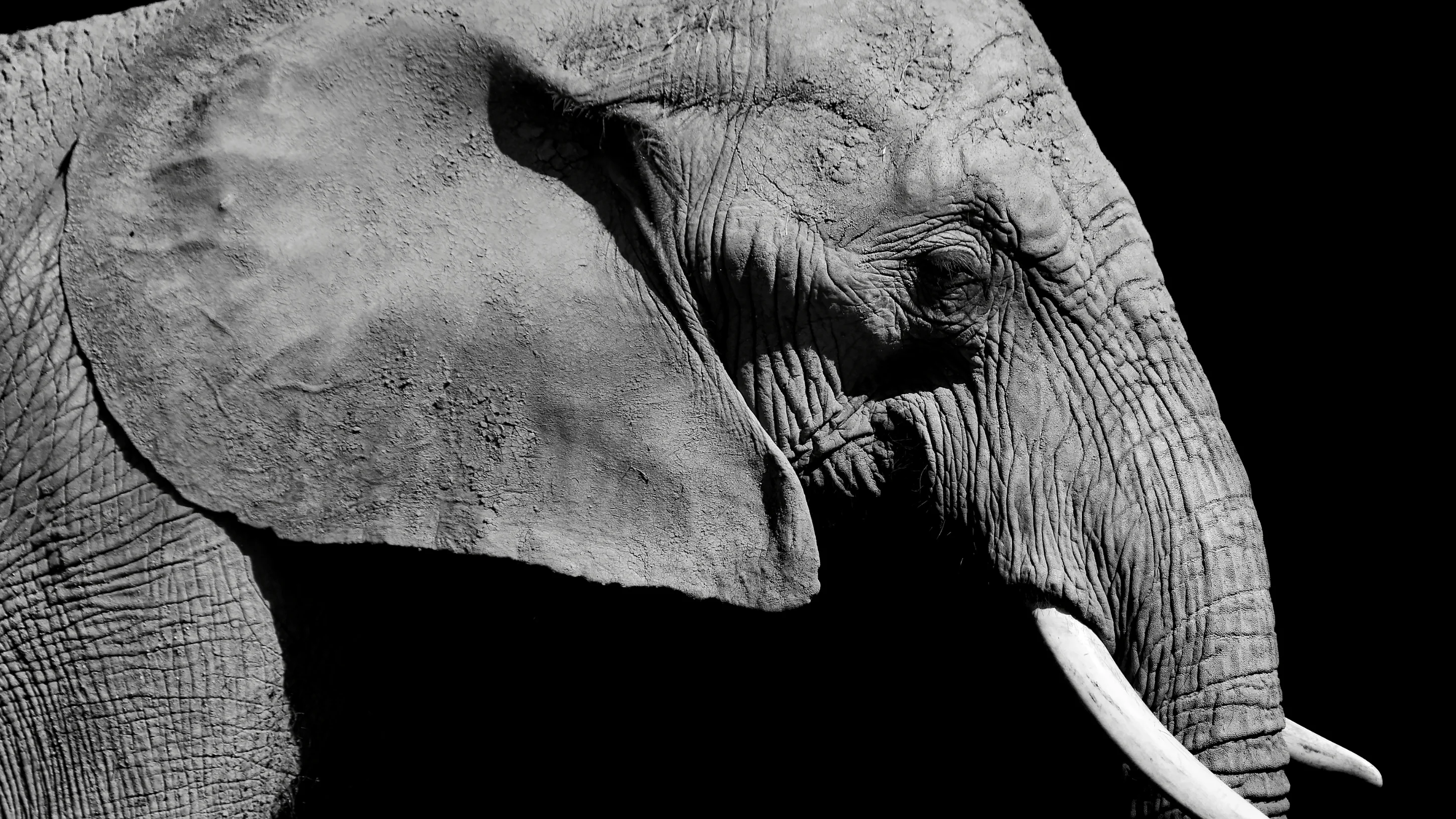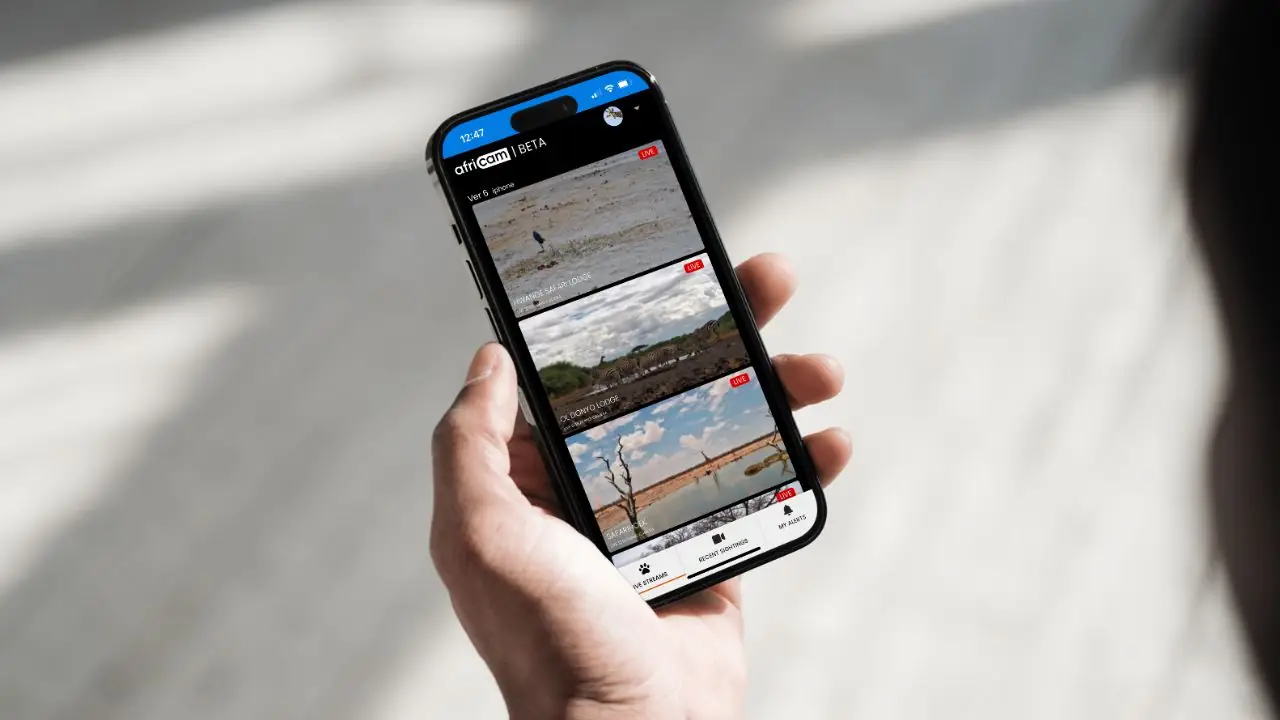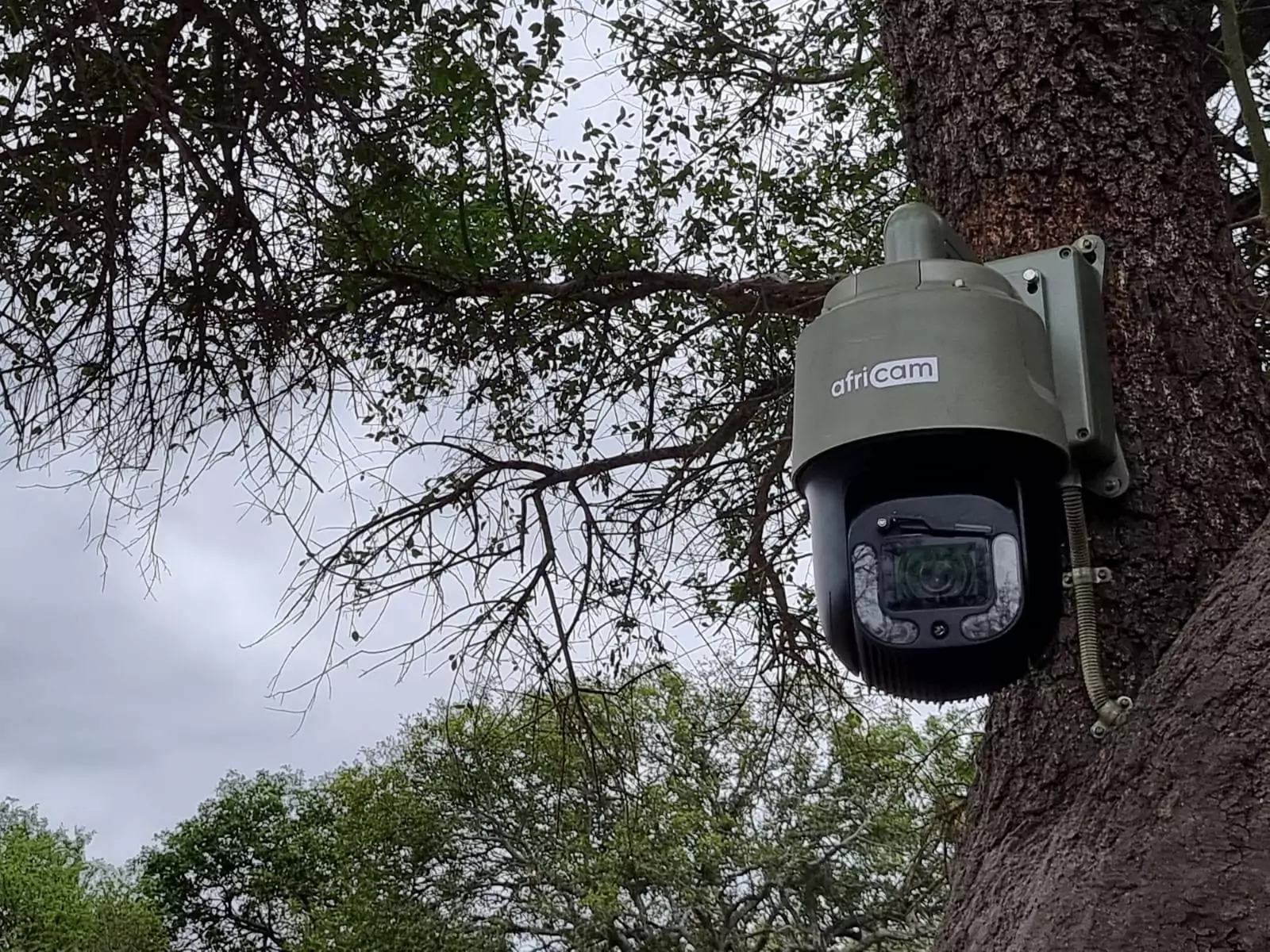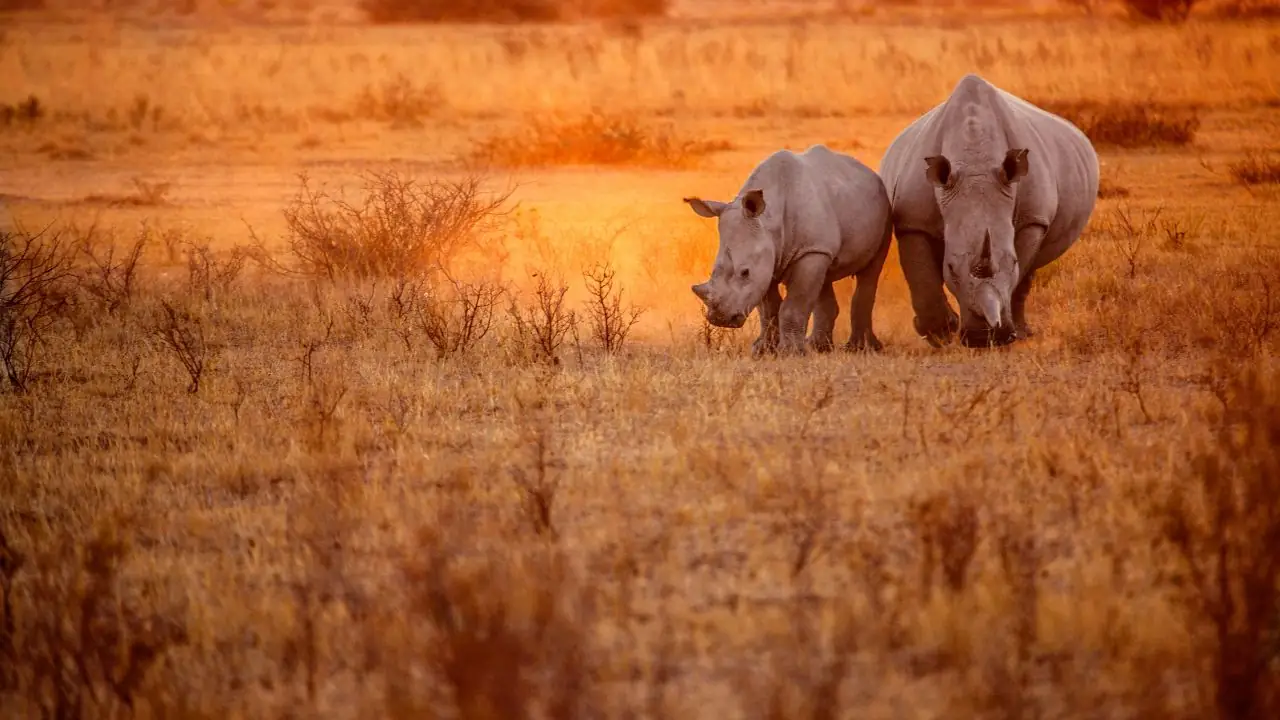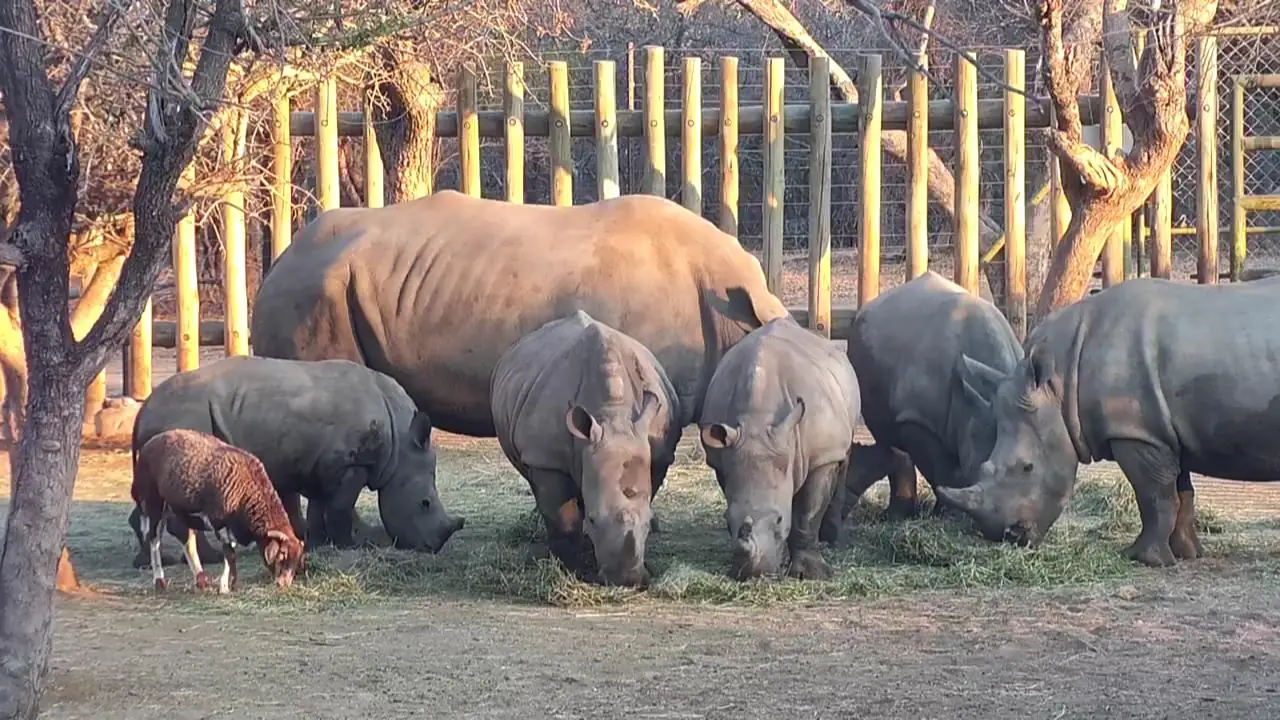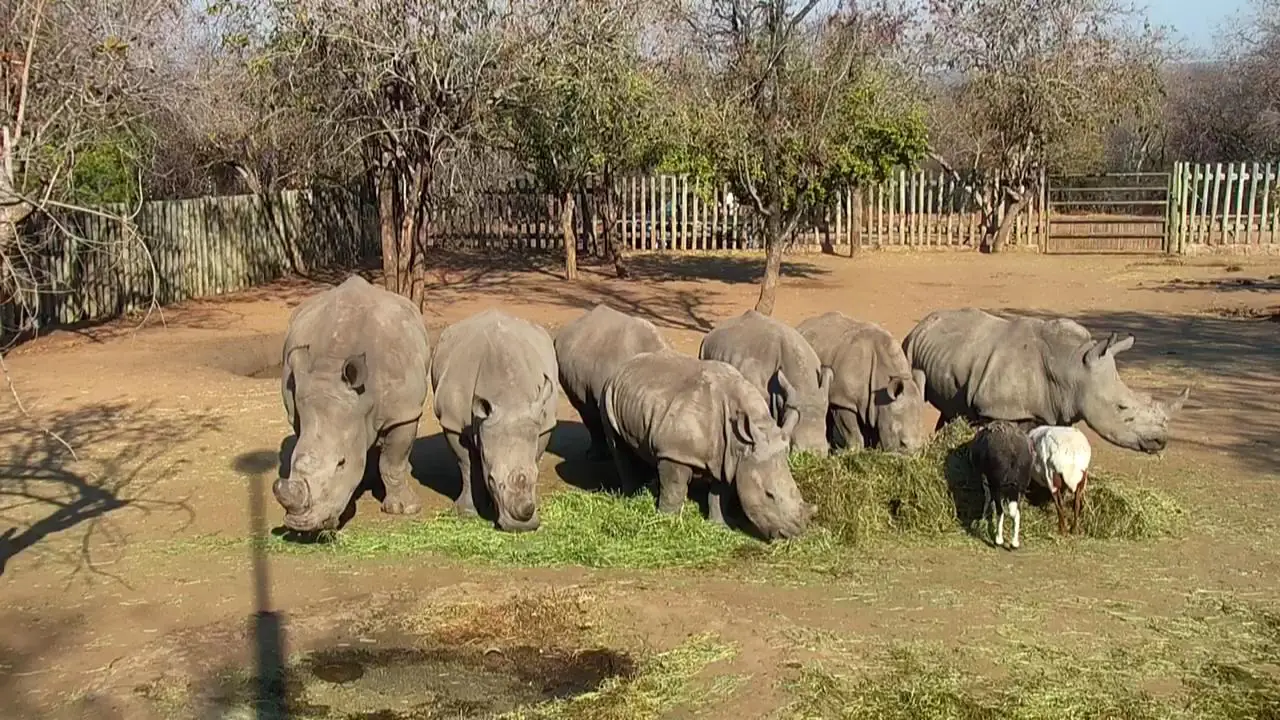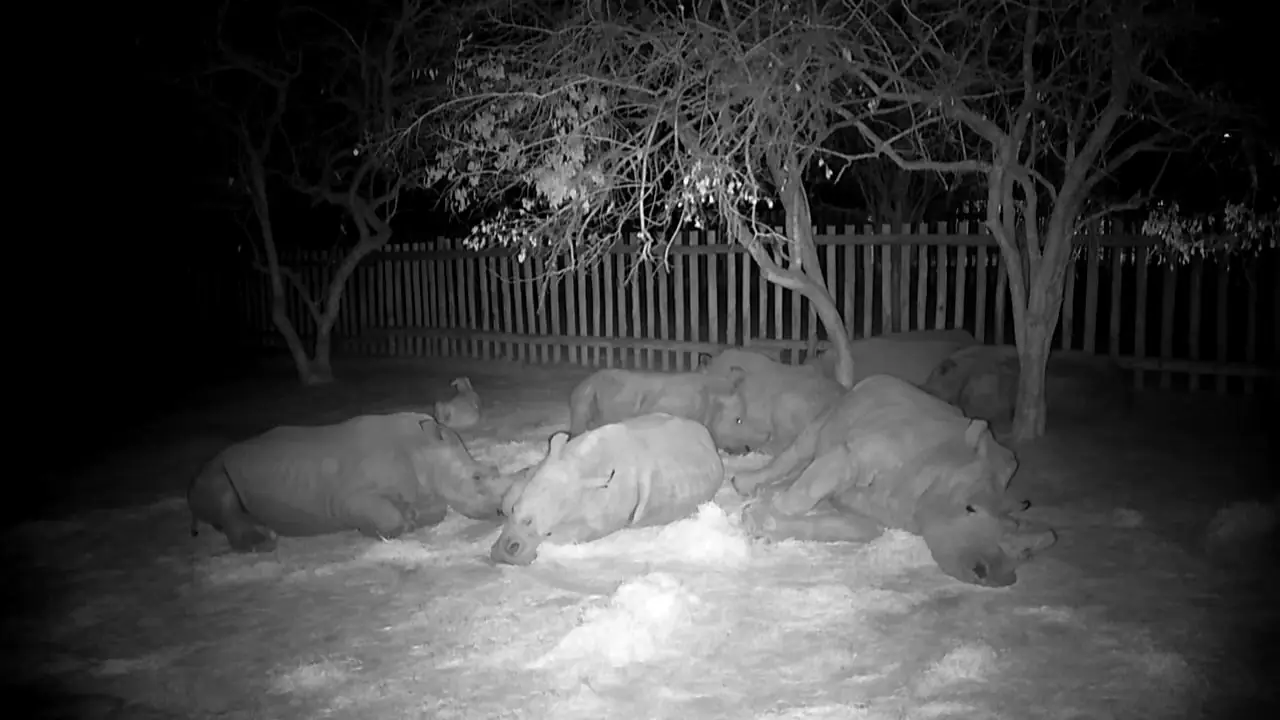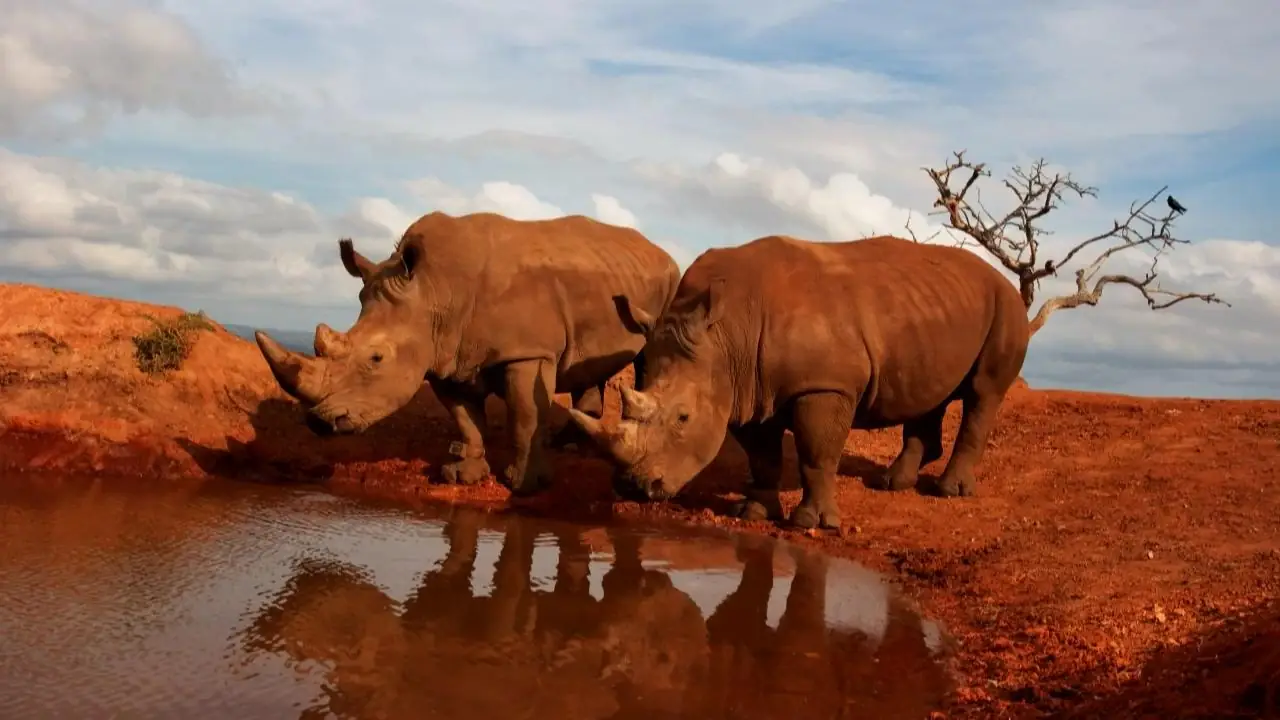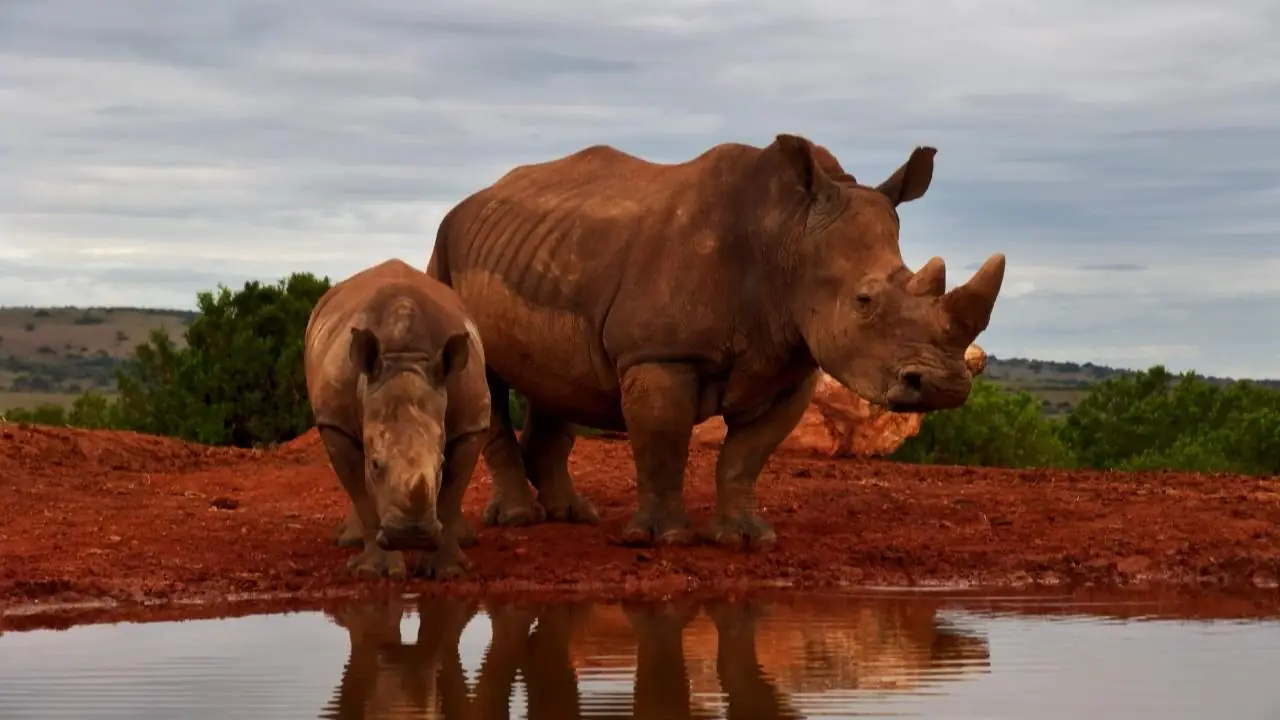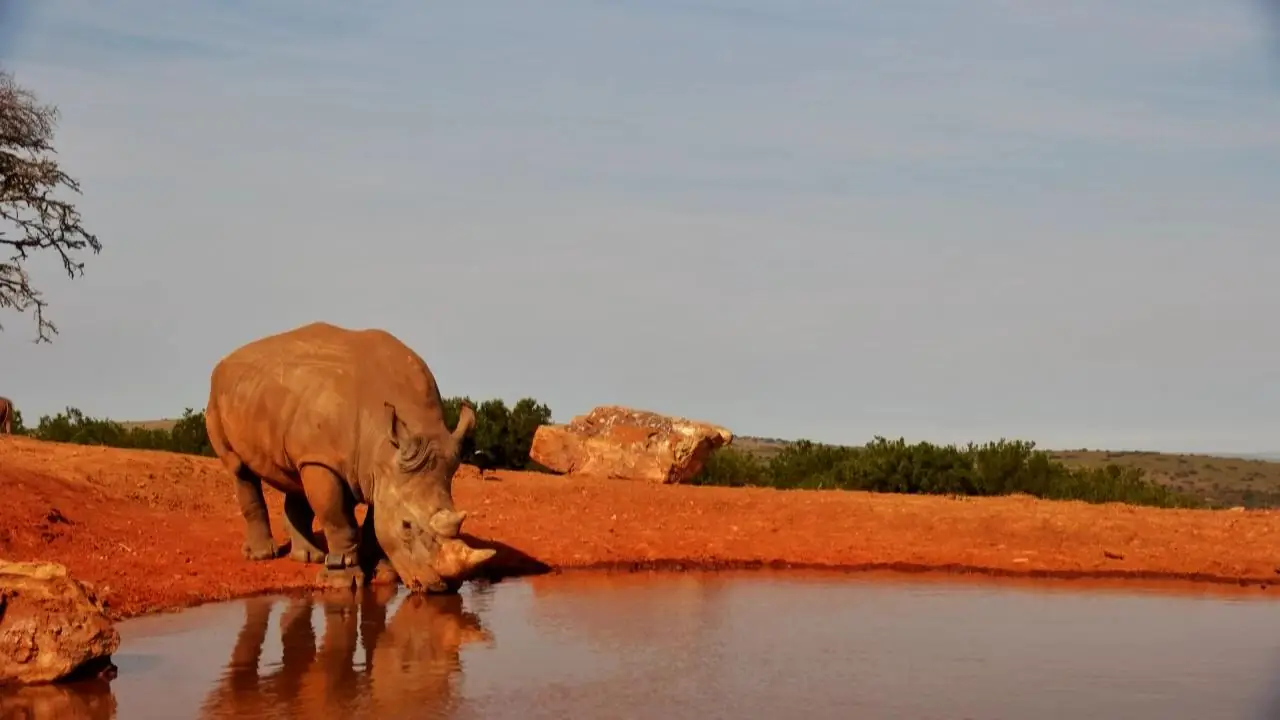Email: info@africam.com
World Rhino Day
September 22nd, 2025
Posted in: Conservation
A Call to Protect These Gentle Giants
Each year on 22 September, we celebrate World Rhino Day, a time to reflect on the importance of rhinos, the challenges they face, and what we can do to secure their future.
The Status of Black and White Rhinos
According to the IUCN Red List, both the black rhino (Diceros bicornis) and the white rhino (Ceratotherium simum) face critical conservation challenges. The black rhino is classified as Critically Endangered, with only about 3,100 individuals remaining in the wild after decades of intense poaching and habitat loss. The white rhino is listed as Near Threatened. The southern subspecies has an estimated population of around 10,000 individuals, while the northern subspecies is functionally extinct, with just two surviving females living under constant protection of armed guards. These figures clearly highlight the precarious future of both species and the urgent need for continued conservation efforts.
- A black rhino curiously peaking through the bushes in South Africa
- A white rhino mother and her calf roaming through the African plains at dusk
Threats to Their Survival
Rhinos face a web of interconnected threats. Poaching for their horns remains the greatest danger, driven by black market demand where horn is used as a status symbol or in traditional medicine, despite having no proven medicinal value. Habitat loss and fragmentation caused by agriculture and human expansion further limit their range, leaving populations small and isolated. Climate change brings added pressures, with droughts and shifting rainfall patterns affecting food and water sources. Human-wildlife conflict and organized crime syndicates exploiting weak enforcement create yet more hurdles for conservation efforts. Together, these threats form a heavy burden on a species that has already been pushed so close to the edge.
Why Rhinos Matter
Preserving rhinos is crucial for ecological, cultural, and ethical reasons. As megaherbivores, they play a vital role in shaping landscapes, dispersing seeds, and creating habitats that benefit countless other species. Ecologically, their survival is tied to the health of entire ecosystems. Culturally, rhinos are symbols of pride and heritage, woven into the stories, traditions, and economies of many African nations. They are also a cornerstone of wildlife tourism, which supports local jobs and communities. Ethically, we bear a responsibility to prevent their extinction. Having driven them to the brink of extinction through human activity, it is our duty to safeguard them for future generations.
Spotlight on HESC and Founders Lodge
Close to home, the Hoedspruit Endangered Species Centre (HESC) has become a leading force in rhino conservation. The centre focuses on rescuing and rehabilitating rhinos that have been orphaned or injured, often as a result of poaching. Since 2013, HESC has successfully rehabilitated and released several rhinos back into the wild, while also placing strong emphasis on education to ensure that both local communities and international visitors understand the importance of protecting these animals.
Founders Lodge in the Eastern Cape offers another powerful example of conservation in action. Here, rhino protection is part of the guest experience, with visitors learning about monitoring, care, and the challenges facing these animals.
Africam has partnered with HESC to raise awareness for rhino conservation, sharing the centre’s vital work in rescuing, rehabilitating, and releasing rhinos. In addition, Africam has partnered with Founders Lodge to showcase rhinos in the wild, giving viewers an intimate look at these animals in their natural habitat. Both partnerships are brought to life through Africam’s 24/7 Livestreams and its global digital community, connecting people around the world to the plight and protection of rhinos. You can watch both HESC‘s and Founders Lodge‘s livestreams anytime to experience the world of rhinos up close, learn more about their challenges, and be part of the global effort to protect them.
A Shared Responsibility
World Rhino Day is a reminder that the survival of these animals depends on all of us. By supporting organizations like HESC and others across Africa, we can ensure that rhinos not only survive but thrive. Their fate may hang in the balance, but with global awareness and collective action, the story of the rhino can still be one of recovery and hope.

